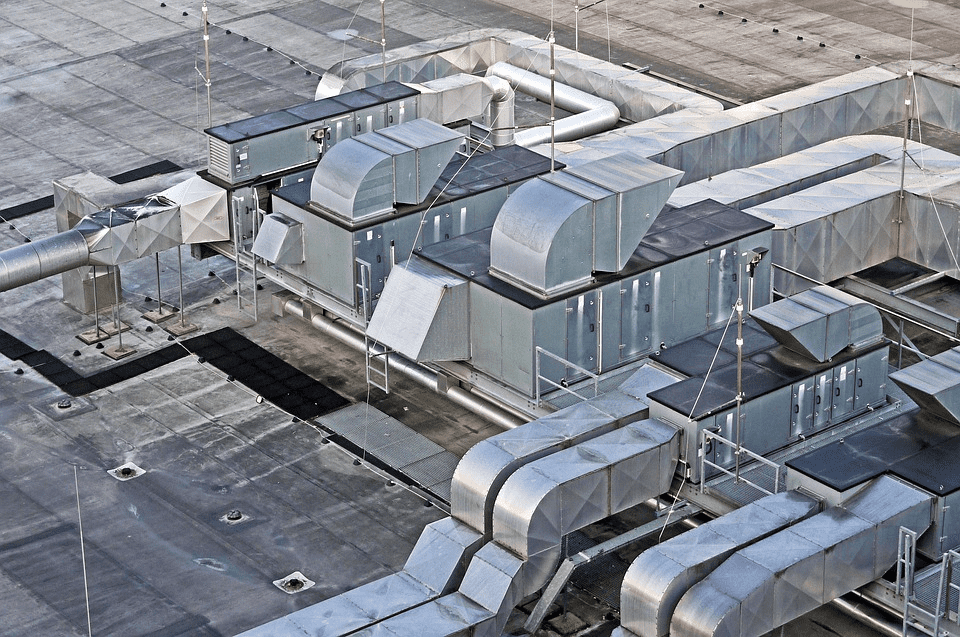Read This and Make Passing Your Air Conditioning Inspections Easy
Air conditioning inspections increase efficiency, reduce carbon emissions, and help ensure healthy indoor air quality. Regular inspections are a ...
Floor, wall and ceiling mounted to meet your unique project design.
Air conditioning legal requirements in the UK are put in place to ensure the health and safety of occupants in commercial buildings. Property managers must follow the Energy Performance of Buildings (England and Wales) Regulations, or the EPB England and Wales Regulations. So, what air conditioning regulations do you need to know about?
Before installing your commercial air conditioning system, you may need planning permission. Planning permission is the process of getting approval from the local government for work done on your building.
Whether your property needs planning permission depends on the location and size of the air conditioning units. Noise pollution may also factor in, especially if the building is in a heavily populated area. Your local council can provide more information on planning permission for your project.
|
Stop Wasting Thousands in Energy Bills The right HVAC will make your space more comfortable and save you much more than just a few quid. |
The Energy Performance of Buildings Regulations require routine inspection of all commercial air conditioning systems. Regular checkups give feedback on how energy efficient your cooling system is. This information gives building managers a chance to find ways to save energy and reduce carbon emissions.
Doing so is beneficial for you in another way - it reduces operating costs.
According to EPB building regulations, air conditioning systems with an effective rated output over 12kW must get inspected at least once every five years. A certified energy assessor must conduct this inspection.
An air conditioning inspection includes the following elements:
After the assessment, you will receive a copy of the inspection report. It will include the following information:
Statutory inspection requirements require energy assessors to submit all inspection reports to the Energy Performance of Buildings Register. An inspection report is invalid unless it’s performed by an accredited energy assessor and reported on the register.
Property owners should save all inspection reports with other building maintenance records. Having this documentation on-hand can help inform subsequent inspections. It may also reduce the time needed for future inspections.
| Learn More About HVACs and Indoor Air Quality: |
If a property owner can’t provide an inspection report upon request, then a penalty charge notice may be issued. Once requested, the property owner has seven days to produce the documentation. If they fail to do so, then they could receive a penalty charge notice for up to £300.
Aside from routine maintenance inspections, building managers are responsible for F-gas inspections.
Fluorinated greenhouse gases (F-gases) are harmful pollutants that cause climate change. The most common type of F-gases are hydrofluorocarbons (HFCs). HFCs have a global warming potential thousands of times that of carbon dioxide. Refrigerated equipment, including air conditioners, uses HFCs.
The Fluorinated Greenhouse Gas Regulations, adopted by the UK government, establish a framework of responsibilities for property owners. The goal of these regulations is to minimize the risk of carbon emissions and other toxins. Responsibilities for property managers include routine F-gas inspections and repair. Regular inspections help ensure the following:
In addition to regularly inspected equipment, larger systems may need routine testing. F-gas regulations may also require up-to-date records of systems checks. Staying on top of F-gas inspections reduces harmful emissions and keeps your building in compliance with the air conditioning regulations.

The performance of commercial air conditioning systems is a health and safety concern. With the COVID-19 pandemic, ventilation and air conditioning regulations in 2019 and beyond are even more important. Commercial property managers have a legal obligation to provide occupants with an adequate supply of fresh air.
Proper ventilation in office air conditioning systems can minimize the spread of COVID-19. Regular maintenance is an essential responsibility of all property managers.
Complying with commercial air conditioning regulations doesn’t have to be a chore or a distract for your business. Staying up-to-date with your routine inspections and maintenance is the easiest way to avoid a penalty notice. One way you can do that is by working with a knowledgeable HVAC partner.
At AirFixture, we recognize that the most important part of our business is our customers. We strive to provide you with long-lasting and cost-effective commercial heating and cooling solutions.
Contact one of our experts today to reduce your energy costs and improve air quality.

Air conditioning inspections increase efficiency, reduce carbon emissions, and help ensure healthy indoor air quality. Regular inspections are a ...

Building owners, facility managers, and commercial building tenants know the importance of keeping commercial HVAC running: If it gets too hot to...

When it comes to any new building or renovation project, it's vital to ensure your project meets all building code requirements. Understanding every...
